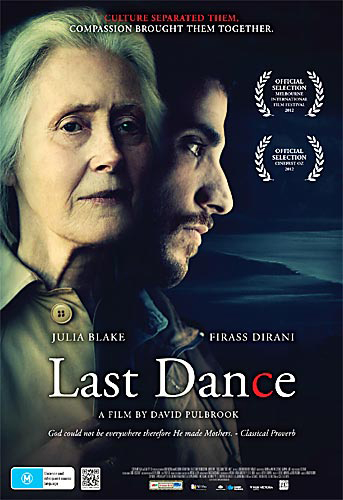

Last Dance (David Pulbrook, 2012) Julia Blake, Danielle Carter, Firass Dirani; drama
This is a Melbourne story about terrorism. There is a murder in a mall. One of the terrorists escapes and finds himself in a suburban street. He goes into the house which is owned by a Jewish widow whom we have seen in a baker's shop, doing her ordinary shopping, chatting to her neighbours, phoning her niece.
However, the film becomes a two-hander: the widow and the terrorist. While he threatens her, he is wounded. She takes care of him. He becomes less suspicious of her, he is less cold-blooded than she originally thought. He allows himself to become dependent on her.
The film serves as a contemporary urban fable for dialogue between Jews and Arabs. He is less threatening. She is more sympathetic and understanding. She covers up from police and neighbours that he has been in the house. She arranges a ticket so that he can leave Melbourne.
However, the ending is melodramatic: the action of the police, the action of the neighbour; and the audience left with mixed feelings about what they have seen and how they ought to think about terrorism and the action of the widow.
The strength of the film is in the performances: Julia Blake, always reliable and dignified, as the widow, Firass Dirani as the terrorist, with Alan Hopgood as the neighbour. Peter Malone
Garry Gillard | New: 3 March, 2013 | Now: 12 June, 2020